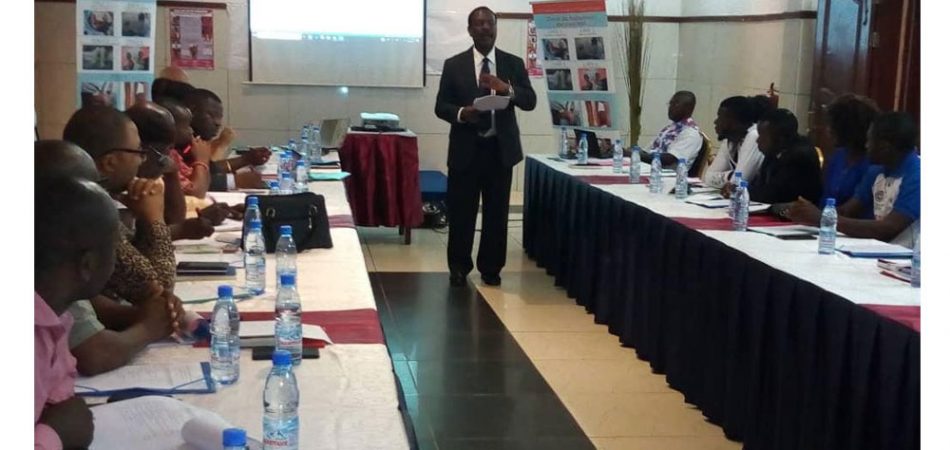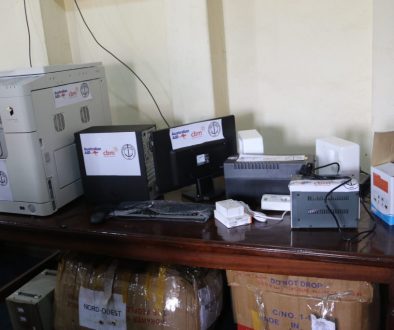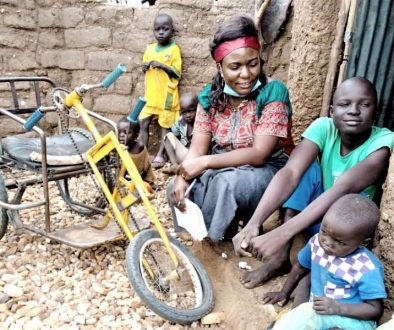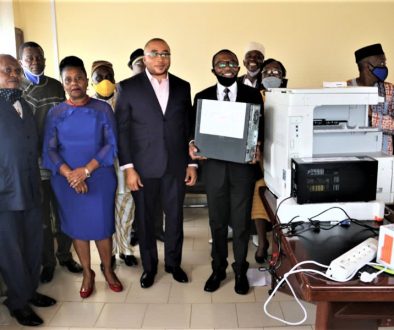CCCP Stakeholders pull Ideas, Design Phase 3 of Project
Stakeholders of the Cameroon Clubfoot Care Project (CCCP) have made their contributions in the design of the third phase of the CCCP. This was during a national stakeholders’ meeting that took place on May 8, 2019 in Yaounde. According to the CCCP Manager, Awa Jacques Chirac, the previous phases of the project were planned solely by the CBC Health Services which recorded some gaps. Based on this limitation, the objective of the workshop was to plan the third phase of the project carefully with other stakeholders prior to its kick-off in January 2020.
At the start of the workshop, the Director of the CBC Health Services, Prof. Tih Pius recounted cases of children with clubfoot treated in the past years of the project. He commended Mercy Ship for paving the way for the project to advance advocacy with the Ministry of Public Health. Prof. Tih also applauded the health care providers, religious and traditional leaders, parents of children with clubfoot, project staff, demand generators, partner institutions and ministries for collaborating with the CBC Health Services in providing clubfoot services which has put smiles on the faces of close to 100 children who are being treated using the Ponseti method.
The Director described the participation approach of planning the next phase of the project as the best way to ensure effective implementation reason why he called on all the stakeholders to pull their contributions together in order to improve on the next phase.
The Clubfoot Focal Point at the Ministry of Public Health (MOH) in his presentation acknowledged that Clubfoot deformity is a public health problem in Cameroon. He assured stakeholders that MOH is in the process of integrating clubfoot into the health system, a move that attracted applauds of the stakeholders.
The CBM Advisor Physical Rehabilitation, Michiel Steenbeerk painted a picture of what it takes to implement a national clubfoot Program. Steenbeek underlined training of personnel, provision of clinical supplies, awareness and data collection as pillars for a national clubfoot program. He noted that government stakeholders, Community Based Rehabilitation workers and health care providers are fundamental in fostering a clubfoot program.
With knowledge on the national clubfoot project, the CBM Country Director for West and Central Africa, Mue Peter guided participants in putting their ideas together in the different components of the CCCP Project. Their contributions were commended by the CBM Country Representative in Cameroon, Fon Julius who at the close of the workshop, appreciated stakeholders for their commitment in designing the upcoming phase of the project.
Earlier, Steenbeek and CBM Project Manager, Private Donors Clara Gaztelu carried out a technical assessment on some Clubfoot Clinics in Center and Littoral Regions. At the end of the visit and the planning workshop, they both expressed satisfaction with the work done by the CCCP staff while hoping that improved results will continue to be recorded in the days ahead.



